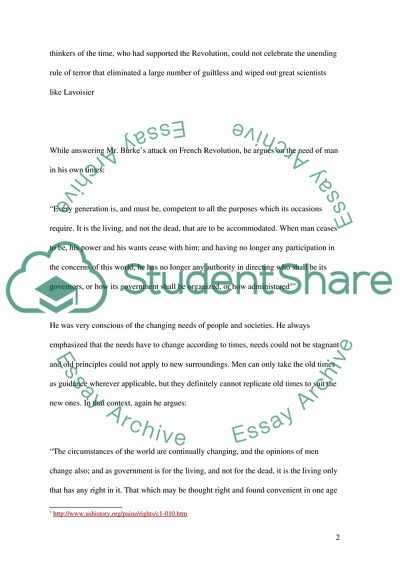Cite this document
(The Rights of Man by Thomas Paine Essay Example | Topics and Well Written Essays - 1750 words, n.d.)
The Rights of Man by Thomas Paine Essay Example | Topics and Well Written Essays - 1750 words. https://studentshare.org/politics/1539096-discuss-thomas-paines-the-rights-of-man-as-a-product-of-its-time
The Rights of Man by Thomas Paine Essay Example | Topics and Well Written Essays - 1750 words. https://studentshare.org/politics/1539096-discuss-thomas-paines-the-rights-of-man-as-a-product-of-its-time
(The Rights of Man by Thomas Paine Essay Example | Topics and Well Written Essays - 1750 Words)
The Rights of Man by Thomas Paine Essay Example | Topics and Well Written Essays - 1750 Words. https://studentshare.org/politics/1539096-discuss-thomas-paines-the-rights-of-man-as-a-product-of-its-time.
The Rights of Man by Thomas Paine Essay Example | Topics and Well Written Essays - 1750 Words. https://studentshare.org/politics/1539096-discuss-thomas-paines-the-rights-of-man-as-a-product-of-its-time.
“The Rights of Man by Thomas Paine Essay Example | Topics and Well Written Essays - 1750 Words”. https://studentshare.org/politics/1539096-discuss-thomas-paines-the-rights-of-man-as-a-product-of-its-time.


